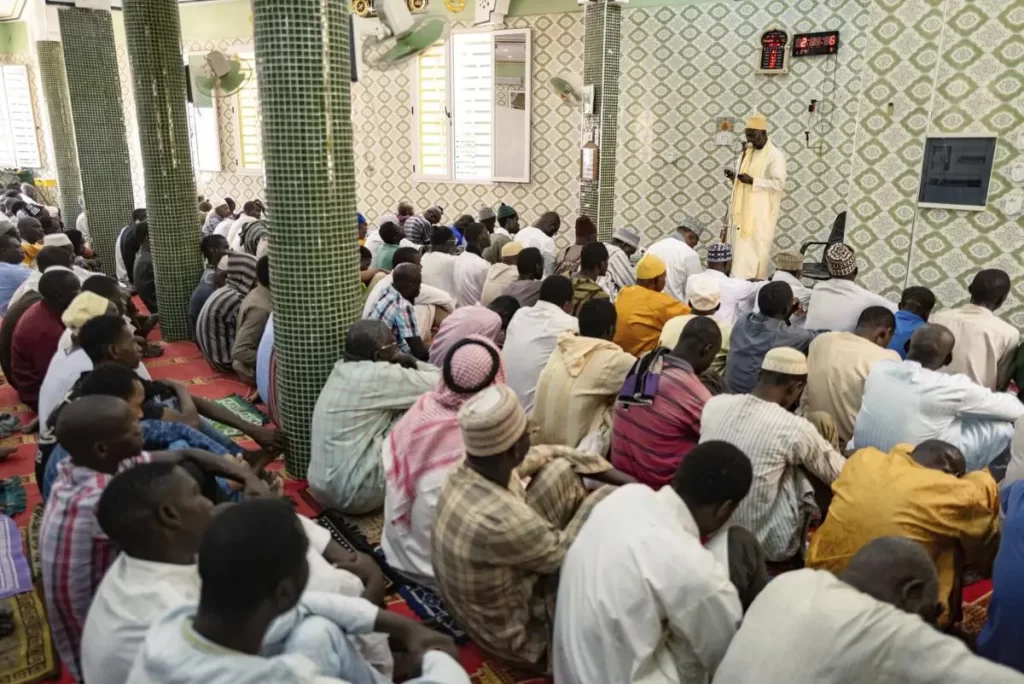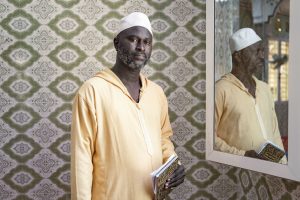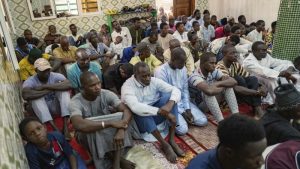Senegal’s ‘Schools for Husbands to Redefine Responsibilities in order to Save Mothers’ Lives

On a warm evening in Dakar, a dozen men sat cross-legged in a modest community hall, listening as Imam Ibrahima Diane gently challenged a cultural norm that has shaped generations. With a mix of scripture and personal testimony, the 53-year-old father described how he bathes his baby and helps his wife with household chores. “The Prophet himself says a man who does not help support his wife and children is not a good Muslim,” he reminded them. His words drew laughter from some, applause from others, but for many in the room, they were quietly revolutionary.

The gathering was not a sermon but a moral class session that is makeshift reorientational school for husbands. An initiative backed by United Nations, designed to shift deeply rooted gender roles in Senegal. Here, respected male leaders are trained to model what program organizers call “positive masculinity”: a vision of manhood that embraces shared responsibility in homes, particularly around health and maternal care. They are then expected to spread this message in their villages, mosques, and neighborhoods, creating ripples of change in places where tradition still casts a long shadow.

In most part of Senegal, even across many West African societies, men are the final authority in family decisions. From finances to farming, from education to healthcare. That power can be deadly when it comes to maternal health. Doctors warn that delays in seeking medical care in most African societies, is often because husbands hesitate to approve hospital visits, or because women are discouraged from speaking up, which is largely one of the leading contributors to maternal mortality. Every year, hundreds of Senegalese women die in childbirth from causes that could have been prevented with timely medical intervention.
![]()
The initiative therefore strikes at the intersection of culture, family and politics. It challenges the quiet but powerful systems that dictate who decides, who speaks and who sacrifices. The stakes are often between life and death for most women. On the other hand, the challenge men, is one of identity. In some societies, this cultural value reconciles a long-held beliefs about masculinity with the reality that their families are stronger, healthier and more prosperous when women’s voices carry weight.
But this makeshift reorientational school for husbands is not just a medical campaign, it is a sociocultural transformation for husbands in the West African societies. By engaging men in conversations once considered women’s domain, the schools aim to redraw the boundaries of care and responsibility. They are building a cultural bridge between tradition and progress, religion and reform, masculinity and empathy. In a country where maternal mortality remains stubbornly high, such reimagining of gender roles could prove as crucial as any hospital bed or midwife.
Senegal’s “schools for husbands” are at their core, an experiment in redefining power within families, not erasing men’s influence, but reshaping it into a force that supports rather than silences and protects rather than controls.









